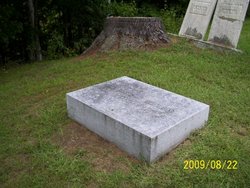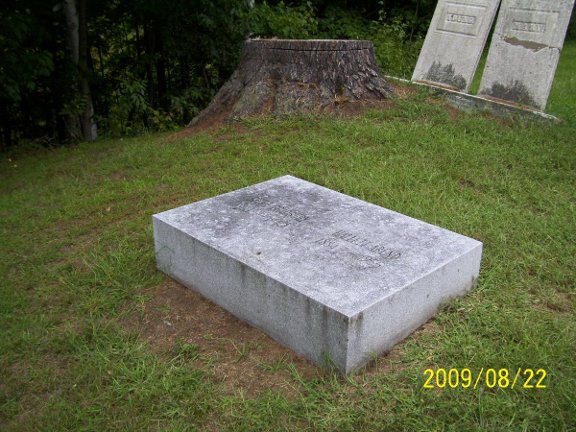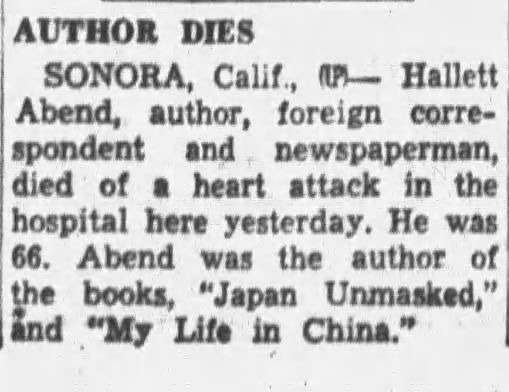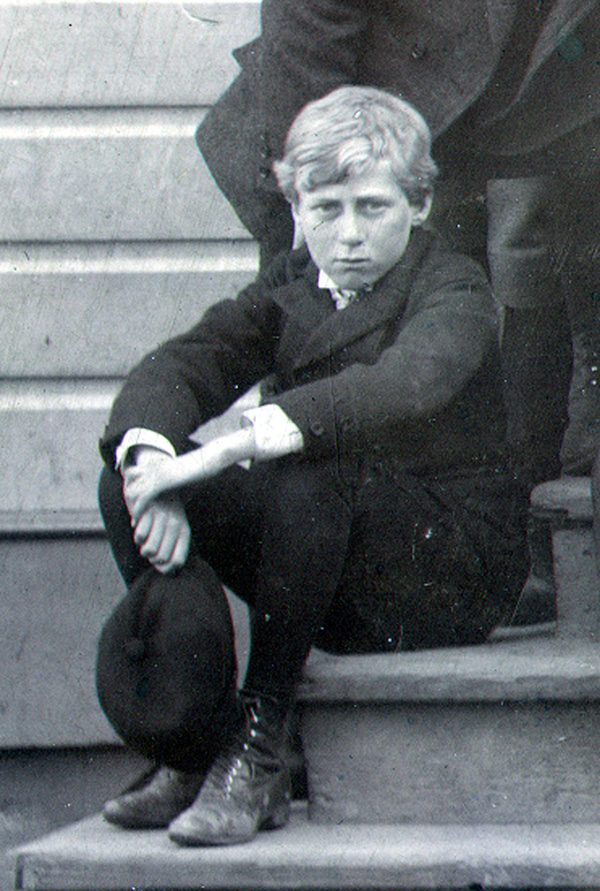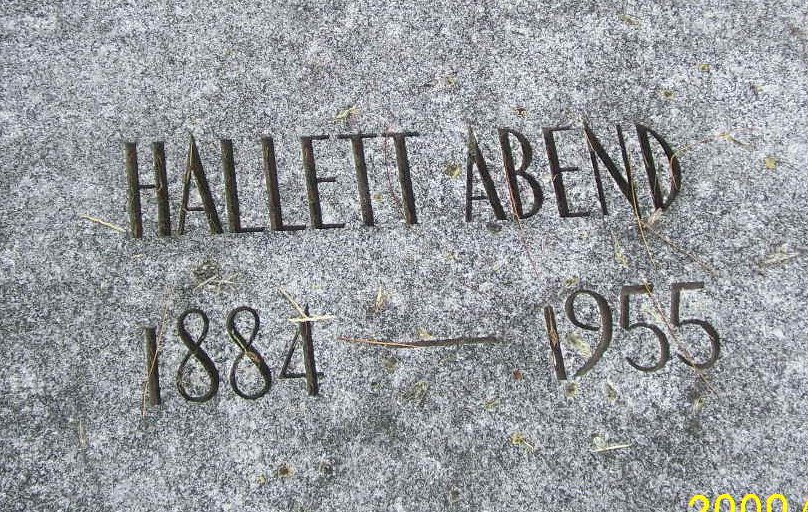Info below provided by: Steven Branting
Hallett Abend's came to Lewiston, Idaho, in the late 1890s entered Lewiston High School, working as a cub reporter for the Lewiston Morning Tribune. His poetry appeared in the Tribune and various literary journals. After they returned to California in 1903, he would attend Stanford University and then join the Spokesman-Review (Spokane, Washington) in 1909. After a stint in Hollywood writing scripts for silent films and work at the Honolulu, Hawai'i, Star-Bulletin, the Idaho Daily Statesman (Boise), and Los Angeles Times, he was offered a job in 1926 as chief New York Times correspondent in Peking (Beijing), China, as part of a six-months' vacation. He ended up staying 15 years and reported on the invasion of China by Japan. In 1929 he became an "international incident" when the Chinese government took exception to the articles he wrote that advised the American government not to invest in the Asian market. The Chinese government ordered him to be deported back to the States, but the order was later rescinded. He wrote Tortured China (1930) and Can China Survive? (1936). On August 22, 1937, he was among those wounded when a heavy artillery shell exploded in the heart of the international quarter. He was beaten by Japanese military police. His reporting of the "Rape of Nanking" in 1937 exposed the extent of Japanese atrocities in the city. Will Rogers regarded Hallett as perhaps the best informed American on Chinese affairs.
The Union Democrat - Dec 1, 1955 - Page 9
Hallett Abend, 66, Noted Correspondent, Writer, Succumbs Here
Hallett Abend, 66, former city editor of the Los Angeles Time and noted author and foreign correspondent, died in a Sonora hospital early Sunday following a heart attack.
A native of Portland, Oregon, Abend had been visiting for the past month with his son, Morgan, a teacher at Moccasin, when he was stricken last week. He was undergoing treatment at the hospital when he succumbed.
After leaving his editorial post with the Los Angeles Times in 1924, Abend served as a freelance writer in the Orient, later becoming Far East correspondent for the New York Times in 1927. He was injured in a bomb explosion in Shanghai in 1937, and later was beaten by gunmen in that city who were searching for a manuscript written by Abend.
Private funeral services were conducted at the Terzich-Wilson Funeral Home on Tuesday morning, with the Rev. Leonard Dixon of St. James' Episcopal Church officiating.
Info below provided by: Steven Branting
Hallett Abend's came to Lewiston, Idaho, in the late 1890s entered Lewiston High School, working as a cub reporter for the Lewiston Morning Tribune. His poetry appeared in the Tribune and various literary journals. After they returned to California in 1903, he would attend Stanford University and then join the Spokesman-Review (Spokane, Washington) in 1909. After a stint in Hollywood writing scripts for silent films and work at the Honolulu, Hawai'i, Star-Bulletin, the Idaho Daily Statesman (Boise), and Los Angeles Times, he was offered a job in 1926 as chief New York Times correspondent in Peking (Beijing), China, as part of a six-months' vacation. He ended up staying 15 years and reported on the invasion of China by Japan. In 1929 he became an "international incident" when the Chinese government took exception to the articles he wrote that advised the American government not to invest in the Asian market. The Chinese government ordered him to be deported back to the States, but the order was later rescinded. He wrote Tortured China (1930) and Can China Survive? (1936). On August 22, 1937, he was among those wounded when a heavy artillery shell exploded in the heart of the international quarter. He was beaten by Japanese military police. His reporting of the "Rape of Nanking" in 1937 exposed the extent of Japanese atrocities in the city. Will Rogers regarded Hallett as perhaps the best informed American on Chinese affairs.
The Union Democrat - Dec 1, 1955 - Page 9
Hallett Abend, 66, Noted Correspondent, Writer, Succumbs Here
Hallett Abend, 66, former city editor of the Los Angeles Time and noted author and foreign correspondent, died in a Sonora hospital early Sunday following a heart attack.
A native of Portland, Oregon, Abend had been visiting for the past month with his son, Morgan, a teacher at Moccasin, when he was stricken last week. He was undergoing treatment at the hospital when he succumbed.
After leaving his editorial post with the Los Angeles Times in 1924, Abend served as a freelance writer in the Orient, later becoming Far East correspondent for the New York Times in 1927. He was injured in a bomb explosion in Shanghai in 1937, and later was beaten by gunmen in that city who were searching for a manuscript written by Abend.
Private funeral services were conducted at the Terzich-Wilson Funeral Home on Tuesday morning, with the Rev. Leonard Dixon of St. James' Episcopal Church officiating.
Family Members
Sponsored by Ancestry
Advertisement
Advertisement
